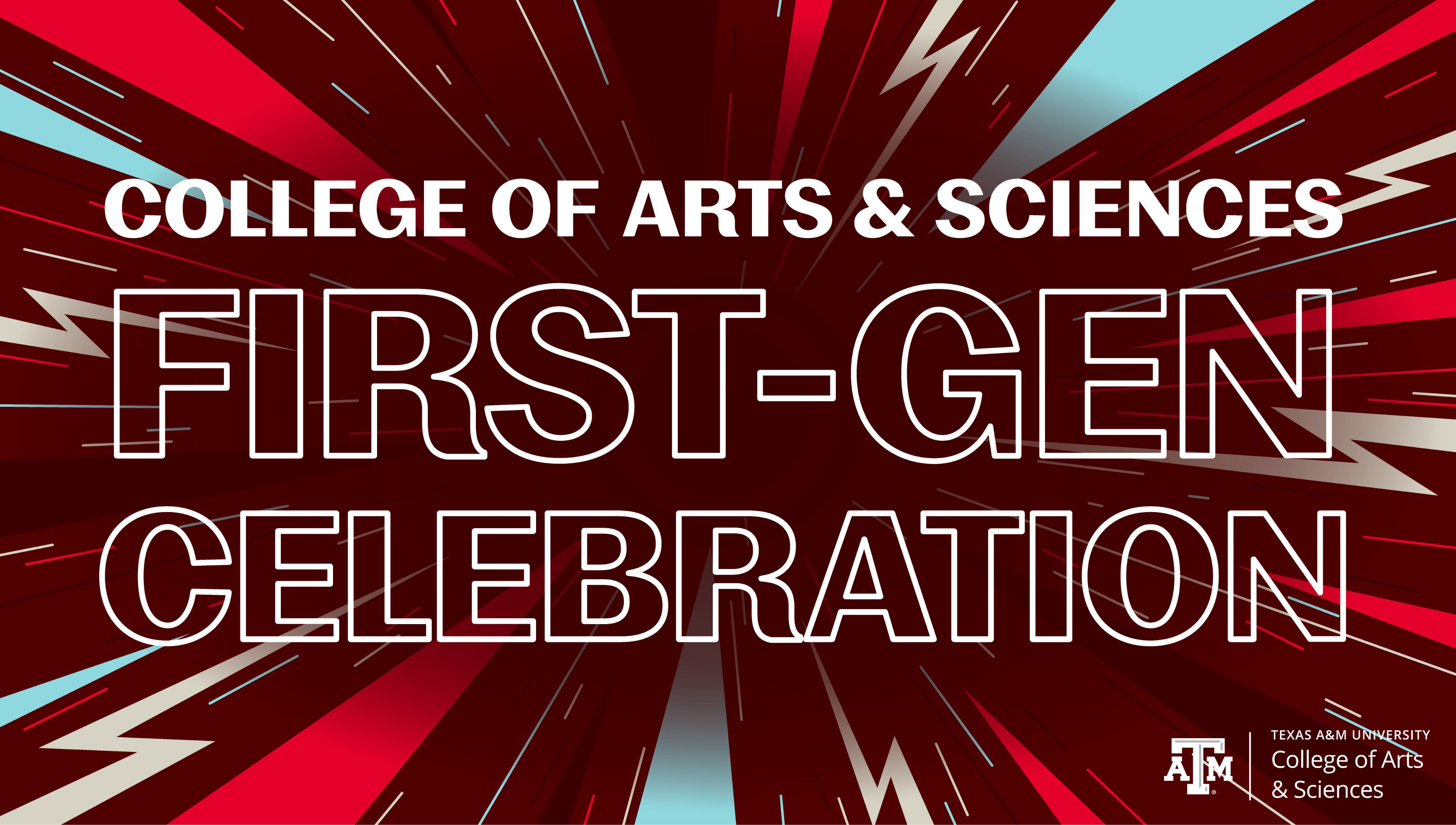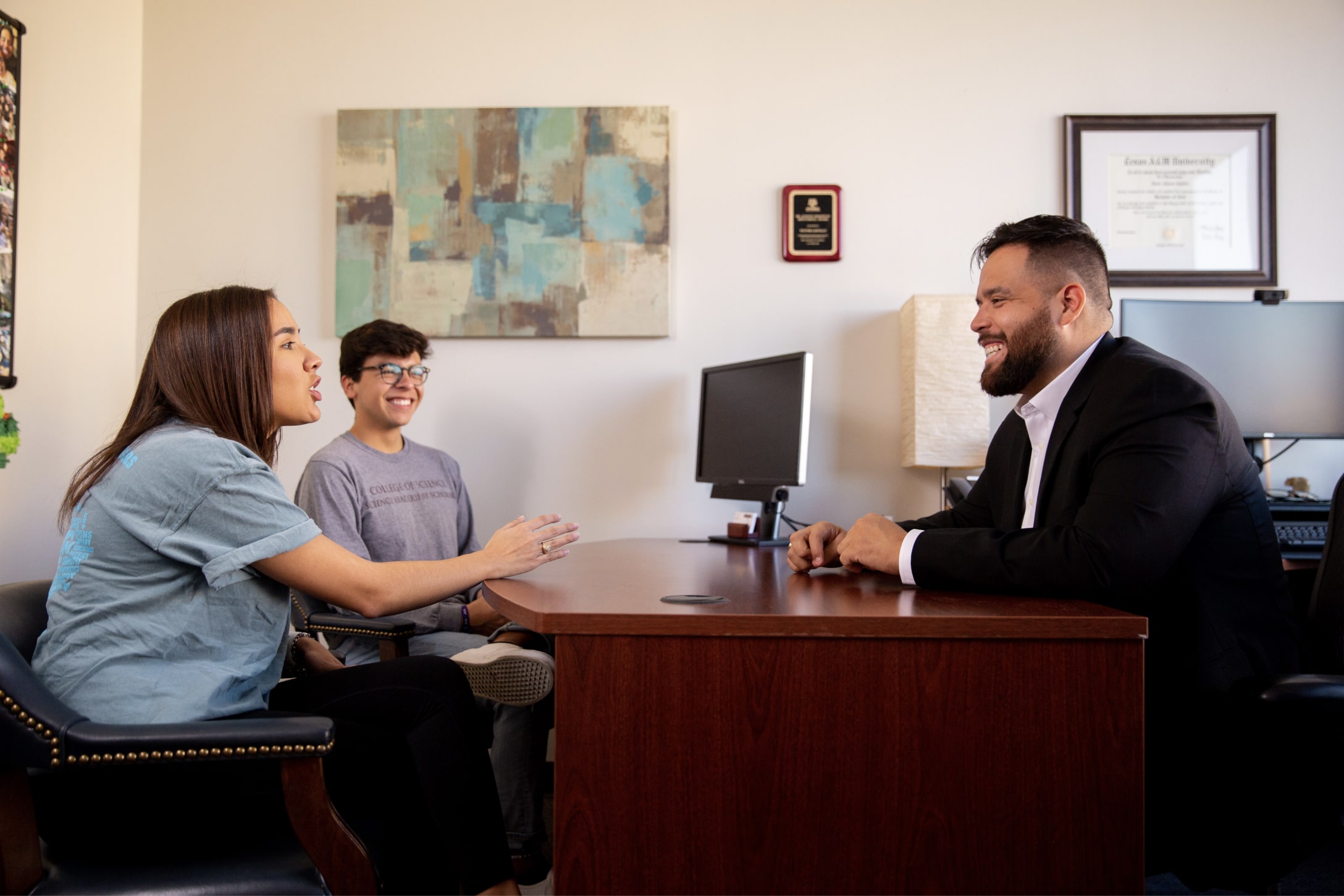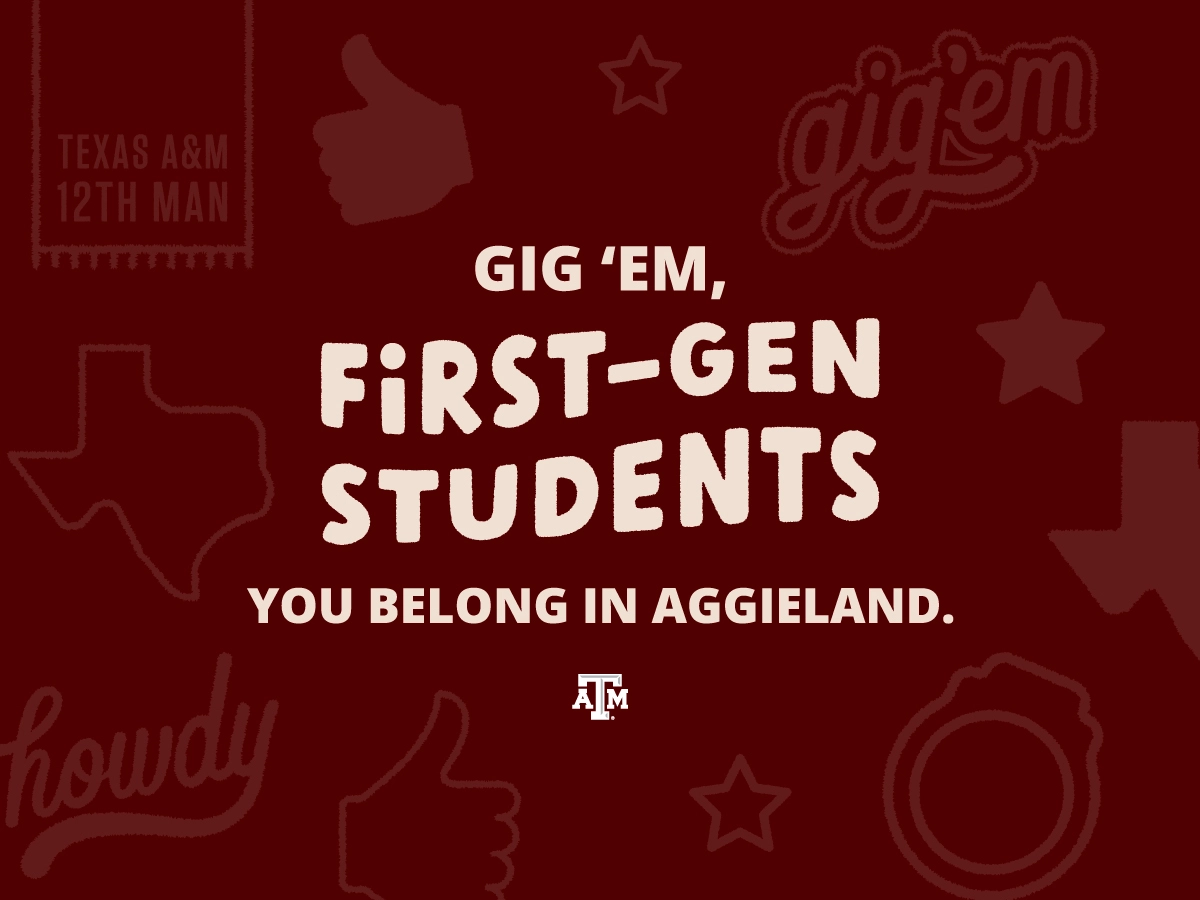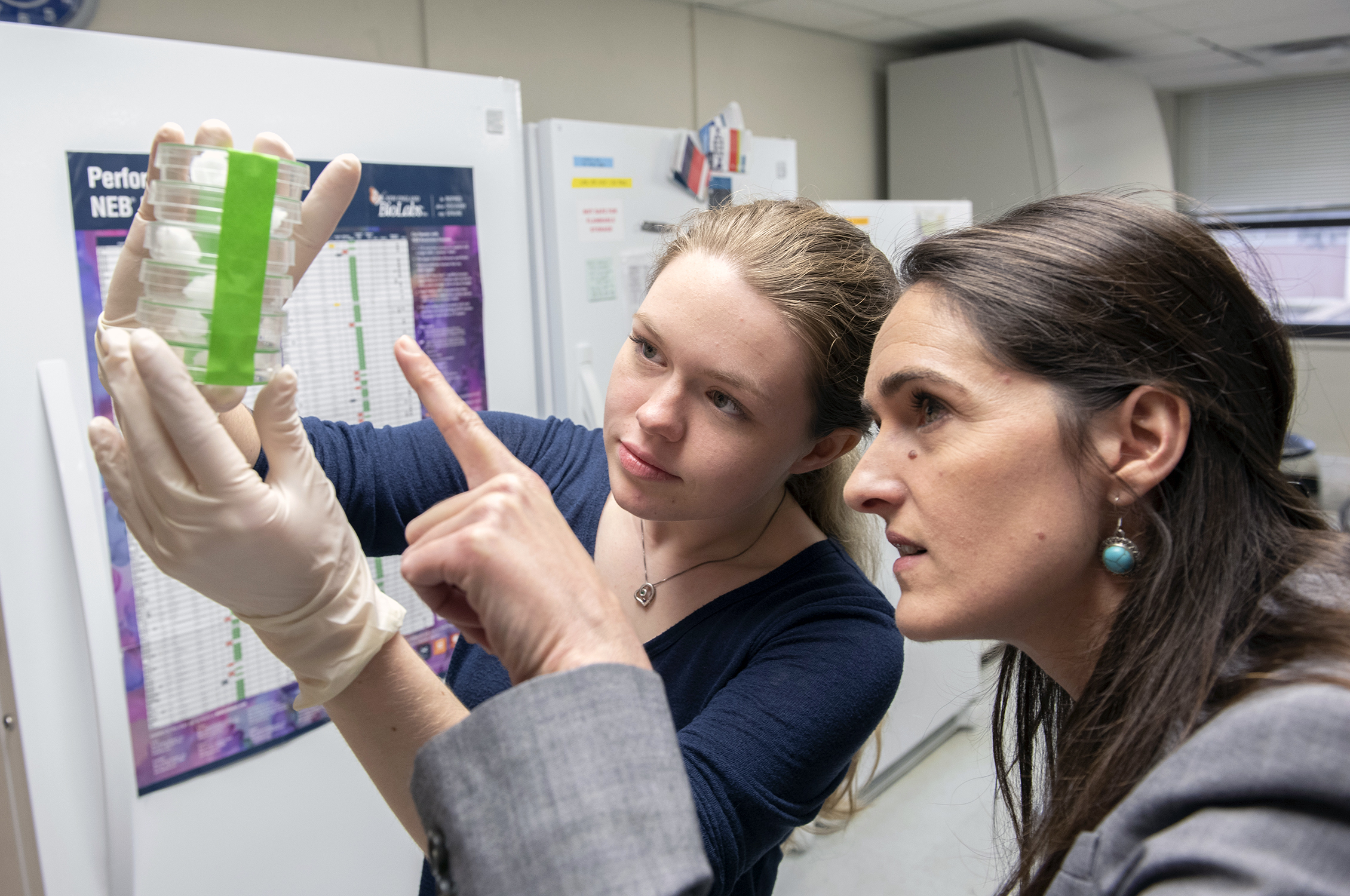
The College of Arts and Sciences is joining Texas A&M University and institutions across the nation in recognizing first-generation students as part of First-Generation Week 2022, set for Nov. 7-11.
Nearly a quarter of Texas A&M undergraduates identify as first-generation students, broadly defined as being the first in their families to pursue and earn a bachelor’s degree. Throughout the week, the campus will host a variety of daily events showcasing different aspects of their day-to-day university life, including college day celebrations, a poster gallery, a student panel and a national virtual event.
The weeklong celebration is jointly supported by the Routh First-Generation Center within the Office for Student Success, the Office of the President and the Office of the Provost in coordination with the academic colleges and schools and other units.
Texas A&M Arts and Sciences plans to celebrate its first-generation students on Tuesday (Nov. 8) with breakfast tacos, photo opportunities and free swag from 10 a.m. to noon on the second-floor patio of the John R. Blocker Building.
According to Associate Dean for Student Success Leroy G. Dorsey, however, it’s a celebration that spans far more than a single day or week, given the many resources and opportunities the college provides to ensure holistic success in all facets of first-generation life.
“Our first-generation initiatives in the College of Arts and Sciences are focused on three pillars: to help these students to become academically, professionally and socially successful,” said Dorsey, a professor in the Department of Communication and Journalism. “That’s at the heart of all our programming, whether it’s education abroad, mentoring or connecting students to faculty to work on research-related projects.”

Dorsey notes that Texas A&M Arts and Sciences has approximately 4,000 first-generation students among its 17,000-plus current undergraduate student population, including 700 who are first-generation freshmen. To help them navigate the ins and outs of the college environment to achieve their academic and extracurricular aspirations, Dorsey and the college’s advising team offer several college-specific programs, including Hullabaloo U, Regents’ Scholars and Science Leadership Scholars. While each is tailored to specific purposes, they share a several common factors, such as peer mentoring, special meetings and workshops, and social and networking events.
“In addition to easing their college transition and making their overall Texas A&M experience more successful and enjoyable, it’s about creating a more intimate community,” said Dorsey, who founded the Freshmen Innovation Group (FIG) program for first-generation students as an associate dean in the former College of Liberal Arts. “First-generation student programming is about shrinking the size of this college from 17,000 students to a much more intimate 20-to-25 class size, creating a welcoming and academically rich environment, and setting a strong foundation for students to progress to graduation.”
Since 2019, Texas A&M has offered Hullabaloo U as a common experience for all 10,000-plus of its first-year students. The one-hour course, which is required for all freshmen, is targeted differently depending on major and population but ultimately designed with community and both academic and personal success in mind. Currently, Arts and Sciences features approximately 60 sections taught by nearly 30 different instructors, including some who teach multiple sections.
“I was a first-generation college student and had no idea what I was doing fumbling through college,” said David Tarvin, an instructional associate professor in Communication and Journalism and a FIG instructor. “At that time at my institution, there were not many support services for first generation students. I share my own stories of failures and successes as a first-gen student to all my classes, with hopes that it helps any student who might be struggling. The educational success of this demographic of students depends on how well they navigate the uncertainties of college. Through our example and by providing programs that encourage connection and networking, we can help students develop strategies to succeed.”

Timothy Woods, an instructional professor in the Department of Sociology and a FIRST Mentor, also taught a FIG course for several years for the former College of Liberal Arts. In addition to the regular academic classroom experience, his FIG students regularly met on Saturdays to rebuild houses for low-income elderly in the Bryan-College Station area. Woods says such service activities helped the students relate course material to real-life within their community while providing them with a tangible opportunity to work together, become friends and support each other as Aggies.
“My favorite aspect of teaching first-generation students is watching them transform from students who are not sure they belong at college in the first couple of weeks of the semester to students who are proud to be Aggies and recognize that they have important contributions to make to the Aggie community,” said Woods, a 2000 Texas A&M sociology Ph.D. graduate. “It is especially meaningful when students graduate and move on from Texas A&M but continue to share with me the challenges and successes they experience in their career and life paths. I have many former students who email, phone and/or Zoom with me, and hearing from them is one of the most rewarding parts of my job.”
Beyond common first-year-experience courses and learning communities, first-generation students in Arts and Sciences benefit from a variety of scholarship programs, including the Regents’ Scholars and Century Scholars programs at the university level, the Brockman Scholars and Brown Scholars programs supporting high-achieving STEM majors, and the college’s own flagship retention program, Science Leadership Scholars (SLS). In addition to financial support, each program offers intangibles that first-generation students describe as invaluable in their college journey.
First-generation sophomore biology major and Regents’ Scholar Christal Guevara Escobar ’25 admits she initially felt continuous doubt as to whether or not she had the strength and ability to be at Texas A&M. She credits an excellent support system and “the comfort of knowing that if this was not for me, I would have never gotten the opportunity” for making her college transition not only doable but also much more enjoyable.
“Imposter syndrome will undoubtedly be felt at some point, which makes it extremely important to find a strong support system that will subdue the voice which tells you that you do not belong,” she added.
As the first person to attend university in his family, sophomore applied mathematics major and SLS Scholar Jeff Lee ’25 says he felt obligated to do what is best for his loved ones. Through SLS, he received an academic scholarship along with so much more, including the mentorship, critical advice and friends he says have helped him alleviate the potential burdens and doubts of being a college student.
“Having little knowledge going in, I felt like I was blindly walking down the road not taken, wasting precious time and resources,” Lee recalled. “Today, I am more than confident to say that I will successfully pioneer through my arduous journey. Without the guidance and role models constantly around me through SLS, I would have most likely given in to the intrusive thoughts of failure.”

Several of the college’s 18 academic departments also offer first-generation-specific programming, including the Department of Biology, whose BioFirst learning community supports freshmen biology majors in good academic standing who are not already Regents’ Scholars. In addition to peer tutoring for introductory biology, chemistry and mathematics courses, BioFirst students take an additional one-credit course, BIOL 100: Horizons in Biology, and are eligible for an Aggie Success Scholarship funded by the Office of the Provost. Since its inception in 2017, the program has supported nearly 200 freshmen and helped place dozens of students in both the Biology Honors Program and research labs.
“The most helpful tools included the separate SI [supplemental instruction] instructors and the community of biology students,” said one BioFirst student. "Many of the BioFirst students became close friends and studied together for most of our classes. We were given a community of people who were in our class and who we saw in a small setting at least twice a week. It was hard not to become close with one another."
When it comes to potential students who might be weighing their own readiness for college, Lee recommends fully embracing the unknown and banking on the reality that both help and success are theirs for the asking and taking.
“People are often afraid of what they do not know,” Lee said. “Some are afraid of heights because they feel like they might fall over. Others are afraid of the dark because they do not know what is in front of them. Accordingly, some are afraid of pioneering their own path through college. Always ask for help. Whether it is through the form of friends, advisors, tutors or our health services, I promise you that help is somewhere around the corner. Life is already more difficult than it has to be as a first-generation student, so do not let ignorance or fear get in the way of your success.”
Tarvin likewise advises first-generation students to get involved on campus with other first-generation students and in student organizations, to ask questions even if they seem dumb, and to take pride in the progress and change they individually and collectively represent.
“First-generation students have an inner drive that is inspiring,” Tarvin added. “When that inner drive meets avenues of real possibilities, when they see a real and different future for their families, and when their self-actualization begins to blossom, that’s when we all succeed. We must support these initiatives because first-generation students represent change. They represent progress. They represent hope.”
